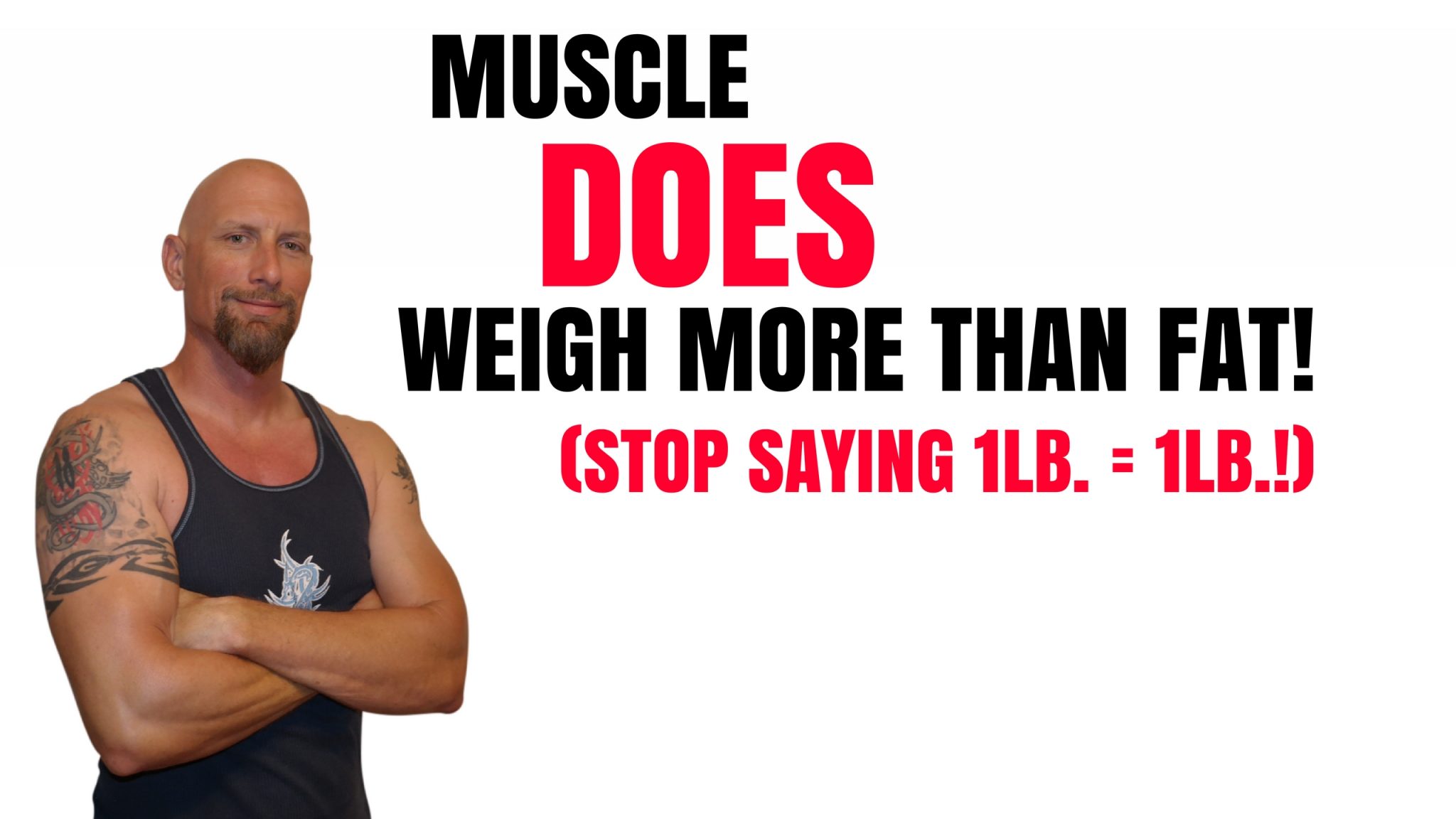Does Muscle Weigh More Than Fat?

Does muscle weigh more than fat? How does it affect tracking my progress? Why is everyone saying “but a pound is a pound”? Why isn’t the scale budging with this new program?
Those are some of the questions I have been getting a lot lately and it’s time to tackle them all here.
You have started a workout plan and you are yet to see the scale budge, don’t be discouraged yet because you are not alone in this. Resistance and cardio exercise can both build muscles and as well reduce fat, so your exercise is not a waste even if the number on the scale still remains unchanged. You are making progress! There are many factors at play that contribute but one may simply be that muscle weighs more than fat. YEP, I SAID IT! Yes, I know “a pound is a pound” but hang with me. This is the reason why it’s possible to become slimmer physically without any substantial drop in weight. In addition, at the start of any program is that your body may be retaining fluid as it tries to adapt to the process.
Does Muscle Weigh More Than Fat?
The answer is yes! Muscle does weigh more than fat. Well, when comparing objects of the same volume anyway. Gasp! That is so uncool to say Chad. The trend particularly in the fitness industry over the last several years is to say that “a pound is a pound” or a “pound of muscle weighs the same as a pound of fat. No kidding Einstein. When did we get so literal? When we say “muscle weighs more than fat” it has been implied for the longest time is that you are comparing the same volume of fat with that of muscle. For instance, 20 square inches of muscle will weigh more than 20 square inches of fat. A drum of muscle will outweigh a drum of fat. A truck full of muscle will outweigh that of fat! So I am completely comfortable with the saying that “muscle weighs more than fat”!
Science Says Muscle Weighs More Than Fat
Since muscle is of higher density, the weight of muscle will be heavier than fat if compared on the scale of the same-size portion. Muscle has an average density of 1.1 g/mL while fat has an average density of 0.9 g/mL. Calculating with these averages, you will find out that the weight of 1 liter of muscle is 2.3 lbs. or 1.06 kg, while the weight of a liter of fat is 1.98 lbs. or 0.9 kg. There may be variation in this result due to several factors such as race, being very obese or fat, as said in “Exercise Physiology” by William D. McArdle et al.
Muscle Weighs More Than Fat and That’s a Good Thing
Let’s get to the good part. Since muscle is denser, a pound of muscle takes up considerably less space than fat. Honestly, I think that is how this well-intended “a pound is a pound” movement started – to encourage people when the scale won’t budge. It has been said that muscle occupies one-third of the space as occupied by fat, but the truth is that muscle actually occupies four-fifths as much as the space occupied by fat. It is possible for two people with different body fat to be of the same weight and height, and therefore the one with more fat will use bigger clothing size.

Even though the actual number of pounds might remain unchanged after engaging in an exercise plan, yet there might be an increase the ratio of muscle and fat which contribute to a healthy living and improved body fitness. So, you should quit being discouraged because of the unchanged number on the scale! My candid advice to people has always been that the scale should only be used as a tool for checking their progress but not for them to become fixated on it. The mirror, as well as the tape measure, will give you the more accurate result on your progress than any other tool, especially when you just began the program.
Now the next time someone asks “does muscle weigh more than fat?”, or they try to tell you that it doesn’t, you can send them my way.





